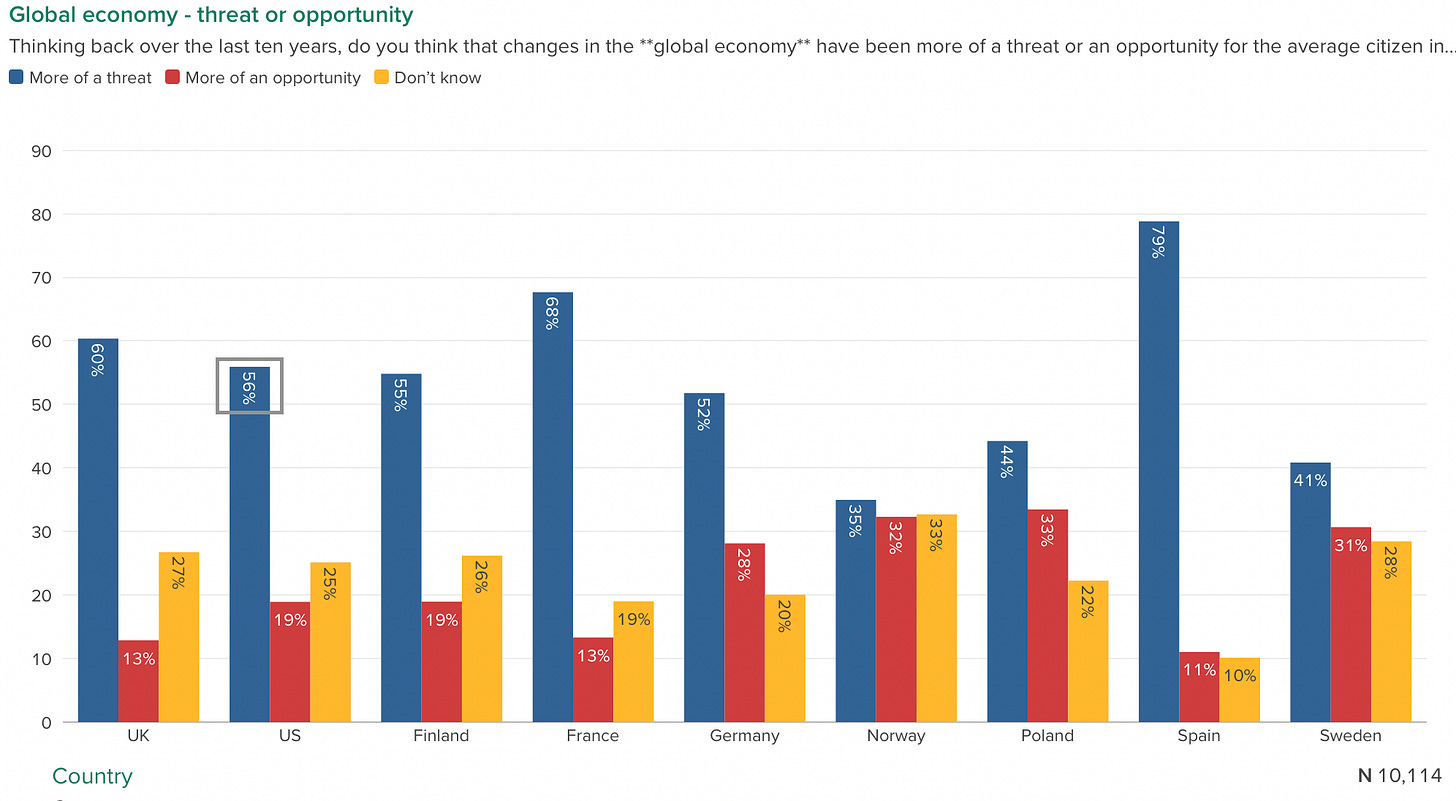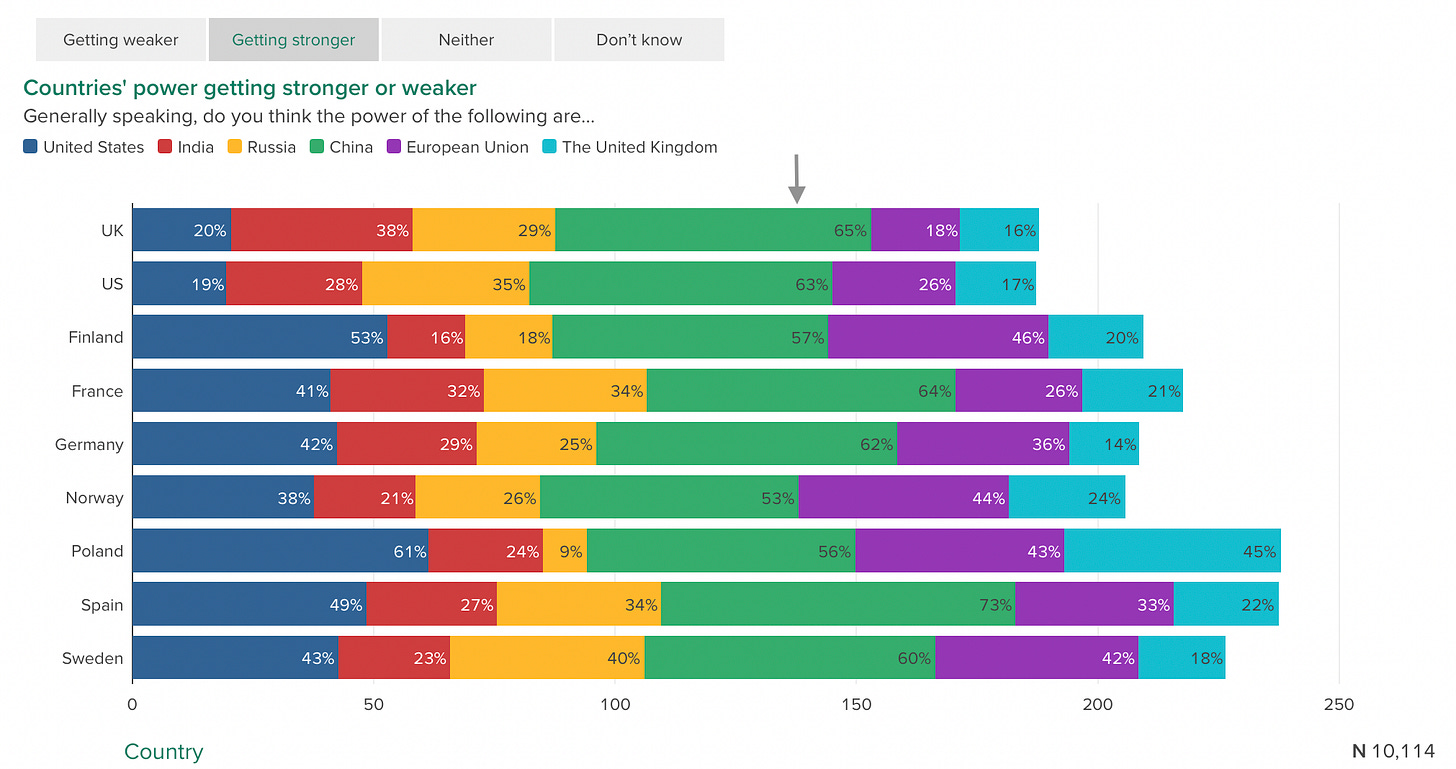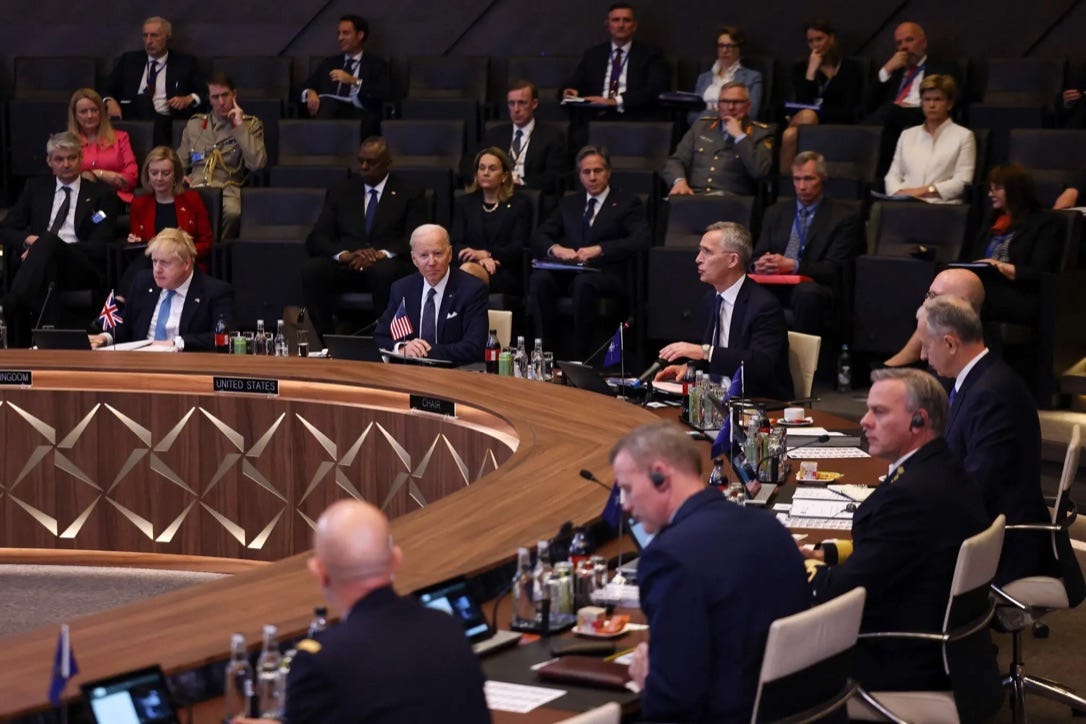The Devil You Know
Americans and Europeans look out at the world and mostly see threats, not opportunities.
Stepping back from the tumult of domestic partisan politics, it’s useful to examine how Americans and their European allies think about changes in the global economy and developments in global security. This larger context helps to explain many of the national discussions citizens are having about the direction of their own country’s policies on everything from the social safety net and rising inflation to immigration and defense spending.
The main takeaway based on new data: Most citizens in America and Europe look out at the world today and don’t like the changes they’re seeing.
Continuing TLP’s examination of comprehensive new public opinion data from Global Progress and YouGov, conducted with more than 10,000 respondents in 9 countries, it’s clear that many Americans and Europeans are skeptical and cautious about changes in the global landscape.
Asked whether changes in the “global economy” have been more of a threat or an opportunity for the average citizen in their country, majorities of citizens in the United Kingdom (60 percent), the United States (56 percent), Finland (55 percent), France (68 percent), Germany (52 percent), and Spain (79 percent) view global economic changes as more of a threat. Pluralities of citizens in Poland and Sweden agree, while Norwegians are basically split on the matter.
Likewise, asked whether changes in “international relations and global security” over the past ten years have been more of a threat or an opportunity for the average person in their country, majorities or pluralities of citizens in all 9 countries surveyed view these global security changes as more of a threat than an opportunity for regular people.
These concerns about global economic and security changes intersect with emerging opinions about global power—particularly in the United States where Americans increasingly view their own country as becoming weaker as China gets stronger.
Looking at the chart below, half of Americans overall say that the power of the United States is getting weaker in the world while more than 6 in 10 believe that the power of China is getting stronger. There are some partisan differences in intensity on this question but the pattern crosses party lines. Three quarters of Trump voters from 2020 believe American power is getting weaker while 80 percent believe China’s power is getting stronger. In comparison, about 4 in 10 Biden voters believe America is getting weaker while nearly two-thirds see China as getting stronger.
Interestingly, as seen in the two charts below, citizens in European countries are less likely than Americans themselves to view American power as getting weaker, with most Europeans (except for those in the U.K.) seeing the U.S. getting stronger in the world. Despite some differences in views of American power, majorities of citizens in all 8 European countries and the U.S. see China’s power getting stronger.
If you want to understand why politics in western countries seems so fractured and contentious today, these data provide some guidance.
Most Americans and Europeans look at changes in the global economy and the global security environment with a jaundiced eye. Consequently, they are fighting internally about how best to prepare their own nations and prop up their own citizens to face mounting economic and security threats from other parts of the world—particularly China, and now Russia with its war on Ukraine.








